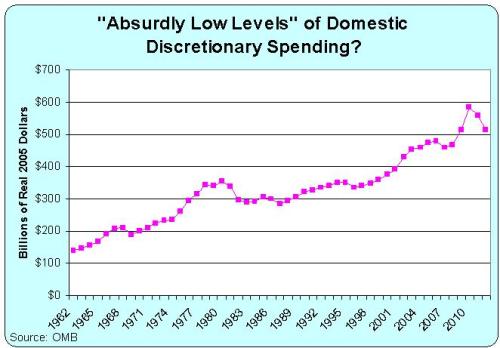It’s not uncommon for there to be debate and discussion about the degree to which libertarians and social conservatives are allies and enemies.
I think they’re mostly allies, in part because there is wide and deep agreement on the principle of individual responsibility. They may focus on different ill effects, but both camps understand that big government is a threat to a virtuous and productive citizenry.
That being said, I also realize that a libertarian who thinks drug legalization is the most important issue in the world is probably not going to feel much kinship with a social conservative who focuses on spiritual treatment of drug addiction (even though I would argue they should share policy views).
I’m contemplating this topic because of a recent New York Times column by David Brooks. He is concerned that traditional conservatives (which I think would overlap with, but not be identical to, social conservatives) have lost influence in the conservative movement and Republican Party. Let’s start with this excerpt.
…the conservative movement…was a fusion of two different mentalities. On the one side, there were the economic conservatives. …there was another sort of conservative, who would be less familiar now. This was the traditional conservative, intellectual heir to Edmund Burke, Russell Kirk, Clinton Rossiter and Catholic social teaching. This sort of conservative didn’t see society as a battleground between government and the private sector. Instead, the traditionalist wanted to preserve a society that functioned as a harmonious ecosystem, in which the different layers were nestled upon each other: individual, family, company, neighborhood, religion, city government and national government. …they were intensely interested in creating the sort of social, economic and political order that would encourage people to work hard, finish school and postpone childbearing until marriage.
Recommended
So far, so good. As a self-described libertarian, I like these concepts. Indeed, I support liberty in part because I think it will both enable and encourage people to experience good lives in the kind of ecosystem David describes.
But then he has a sentence that rubs me the wrong way.
Ronald Reagan embodied both sides of this fusion, and George W. Bush tried to recreate it with his compassionate conservatism.
Let me first stipulate that it’s unfair to equate “compassionate conservatism” with “big government conservatism.” That may have been the end result, but the goal – as was explained to me on several occasions – was to reform the way government did things, not to make it bigger.
But even if we accept that goal, I think Reagan and Bush represented different strains of conservatism. Reagan wanted to shrink the federal government because he viewed Washington as a threat to David’s “harmonious ecosystem.” In other words, Reagan-style conservatism is (was?) based on the notion that Washington could only make things worse, not better.
The Bush people, by contrast, had a more optimistic view of the federal government’s capabilities.
Indeed, Brooks is explicitly willing to make government bigger in hopes of achieving certain goals.
There are few people on the conservative side who’d be willing to raise taxes on the affluent to fund mobility programs for the working class. There are very few willing to use government to actively intervene in chaotic neighborhoods, even when 40 percent of American kids are born out of wedlock. There are very few Republicans who protest against a House Republican budget proposal that cuts domestic discretionary spending to absurdly low levels. The results have been unfortunate. Since they no longer speak in the language of social order, Republicans have very little to offer the less educated half of this country. …The Republican Party has abandoned half of its intellectual ammunition. It appeals to people as potential business owners, but not as parents, neighbors and citizens.
Here’s where I think he lets hope triumph over experience. What makes him think that the federal government is capable of successfully creating and operating “mobility programs”? It’s been operating dozens of such programs and they’ve all failed.
Or why does he think the federal government can reduce out-of-wedlock births when the evidence suggests that the welfare state has played a non-trivial role in enabling such misguided behavior?
Brooks also makes a ridiculous claim about what’s happened to domestic discretionary outlays. Here’s the data, adjusted for inflation, from the Historical Tables of the Budget.
Granted, David is talking about the plans in the Republican budget, not what’s actually happened. But the most the GOP wants to achieve is to put domestic discretionary spending back at 2008 levels. That’s not exactly an “absurdly low level,” particularly compared to existing post-stimulus outlays.
The more relevant question is why he thinks federal spending is associated with good results. There’s certainly no positive evidence from Obama’s stimulus. We also know the War on Poverty backfired. And entitlements are a ticking time bomb in the absence of reform.
By the way, this doesn’t negate what Brooks says about the GOP’s inability to articulate a message that resonates with (as he calls them) the “less educated half of this country.”
All I’m arguing is that results should matter. If we care about making life better for these people and we want the “harmonious ecosystem” David mentions, then we should be making government smaller rather than larger.


























Join the conversation as a VIP Member